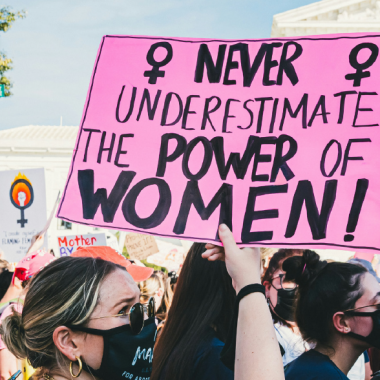Euro 2024 is in full swing, and football fever has gripped Europe! This year’s tournament marks the return of Germany as the host country of the EURO, having hosted it in 1988. Since then, the European football landscape has changed considerably, both in terms of emerging talent and the dynamics of the game. The twenty-four participating teams are drawn from a rigorous qualification process, guaranteeing a high level of competition.
So, with the launch of this event, football fans across Europe have rallied to support their national teams, creating an electric atmosphere on and off the pitch. But who are the favourites to win the title? Which country has the most support online? Which nation dominates online conversations?
In this study, we delve into the heart of this sporting excitement by analysing the discussions and opinions on social networks to understand how the different fanbases express their fervour and which countries generate the most excitement.
Firstly, it is important to note that each of the participating countries has a wide range of demographics and a unique fanbase. Germany, with a population of 83 million, is the most populous country, while Georgia, with a population of 3.7 million, is the least populous. England’s fans, with around 20 million viewers per match, are renowned for their passion for football. France also benefits from positive sentiment on social networks. *Data based on surveys and market research linked to interest in football in each country.
By comparing the populations of the participating nations and the extent of their support, we will highlight the social and cultural dynamics that make this event so captivating.

Following a detailed overview of fan engagement and support for the national teams taking part in Euro 2024, we note that England stands out with an impressive 36% of its active population behind the #ThreeLions, reflected by massive activity on social networks with over 75K mentions (@mentions + #hashtag dedicated to the team). In contrast, although Germany has a larger fanbase in absolute terms with 25 million active supporters (30% of the population), its mentions on X remain more modest at 26.1K, indicating less pronounced online engagement. France, 2nd in the FIFA rankings, generates the highest number of mentions with 325.6K via #FiersdetreBleus and #AllezLesBleus, illustrating a strong sense of national pride among its 15 million active fans.
In terms of proportions, countries such as Portugal and Croatia show a deep passion, with respectively 40% and 50% of their active population supporting their national teams. These figures are reflected in a significant presence on social networks, with hashtags such as #PartilhaAPaixão and #Vatreni (and the mentions @selecaoportugal / @HNS_CFF) generating 115.9K and 21.8K mentions respectively. Despite smaller populations, nations such as Switzerland and Austria maintain high levels of engagement with 25% and 22% of their citizens active as fans connecting to their respective teams on social networks.
Social networks are playing a key role in the Euro 2024 momentum. Millions of fans from all over the world are gathering there to share their opinions, their joys and their disappointments. Social networks are a veritable exchange platform for fans, enabling them to follow all the latest news about the competition, comment on the matches live and analyse the teams’ performances. Since 1 June, more than 4,745,000 messages have been posted on social networks under the headings #Euro2024, @EURO2024, @EURO2024FRA and @EURO2024DE. An impressive figure that testifies to the enthusiasm of fans for the competition, but one that still falls short of the more than 10 million messages published during Euro 2020 at the same stage of the competition. This phenomenon can no doubt be explained by the particular context of Euro 2020, which took place after a long period of health restrictions and was therefore particularly eagerly awaited by fans.

Euro 2024 from 1 June to 1 July in Europe (#Euro2024 / @EURO2024 / @EURO2024FRA / @EURO2024DE / Euro 2024)

Euro 2024 from 1 June to 1 July in Europe #Euro2024
Through the mention #Euro2024, which is represented in 3 million messages, there are four main peaks of visibility:
● 14 June, the official start of the Euro, with the Germany v Scotland match.
● 20 June, the day Kylian Mbappé revealed himself in his mask after breaking his nose in Les Bleus’ 1st match / Disney Italia’s video share highlighting the emotional aspect of sport and the excitement of watching live matches / Various posts from @UEFAEURO2024FR and Spanish player Pedri González talking about the upcoming tournament and the excitement surrounding it, while journalist Conan Furlong shares a video showcasing football highlights.
● On 25/26 June, Cristiano Ronaldo is mentioned several times, including in a post where he features as a “Trending Topic” / Luka Modric, Kylian Mbappe and Lionel Messi are also mentioned in numerous tweets / Several posts refer to the upcoming match between Italy and Croatia, with some predicting an Italian victory.
● On 29/30 June, the excitement accelerates with the start of the Round of 16.
Each Euro 2024 match has its own dedicated hashtag, making it possible to follow the conversations specific to it. These hashtags (#SUIGER for Switzerland-Germany, for example) reflect the varying levels of fan engagement and interest in the different matches.
The opening match between Germany and Scotland generated over 67.7K mentions on social networks, with peaks of activity around goals and controversial refereeing decisions. To date (1 July, before the France-Belgium match), the three most-tweeted matches have accumulated 265K tweets, or 25% of the total number of hashtags for Euro matches. It’s worth noting that this Top 3 is made up exclusively of matches from Group D – France, Poland, the Netherlands and Austria – with two matches each for France and Poland.
The France-Poland match (#FRAPOL) stands out as the most commented on match on social networks, with over 101.4K mentions. This figure testifies to the enormous interest shown by fans in this match, no doubt boosted by the presence of Kylian Mbappé, one of the most popular stars in world football. The Netherlands-France duel (#NEDFRA) was also very popular, with 88.9K mentions, illustrating the rivalry between these two title favourites.

Most engaging tweets from the Top 3 most mentioned matches
Barcola en 4 minutes il est plus dangereux que Thuram en 2 matchs
#EURo2024 #FRAPOL pic.twitter.com/8qWR7a1BLc— 🇨🇷 (@Mendes_PSG) June 25, 2024
𝗛𝗔𝗠𝗕𝗨𝗥𝗚 = 𝗢𝗥𝗔𝗡𝗝𝗘! 😍🧡🇳🇱#NothingLikeOranje #CreateHistory #POLNED pic.twitter.com/69MeMI1ZKu
— OnsOranje (@OnsOranje) June 16, 2024
“Tu m’parles pas d’nage” #NEDFRA #mbappe pic.twitter.com/i2R1cqV0bZ
— Dictavenir 🏴 (@dictavenir) June 21, 2024
While some matches thrilled the social networks, others struggled to generate interest. This was the case for Slovenia-Serbia (#SVNSRB), with just 4,500 mentions, and Denmark-Serbia (#DENSRB), with just 3,000 mentions. These figures can no doubt be explained by the low popularity of the teams concerned, linked to the size of the nations and their below-par performances. Generally speaking, the data shows that matches involving top teams or historic rivalries generate more discussion and engagement on social networks.
Beyond the green lawns and jubilant stadiums, Euro 2024 has established itself as a veritable digital agora, where fans’ passions are expressed and intertwined on social networks. By analysing fan communities, the demographics of the participating nations and online conversations, one thing becomes clear: Euro 2024 transcends borders and brings together millions of people across Europe, albeit in a more moderate way than at Euro 2020.
The effervescence of the fans and the massive engagement on the social networks testify to the pre-eminent place that this tournament occupies in the global sporting landscape. Euro 2024 is not just a sporting competition, it is also a collective and digital experience that brings people together and celebrates the beauty of football.










